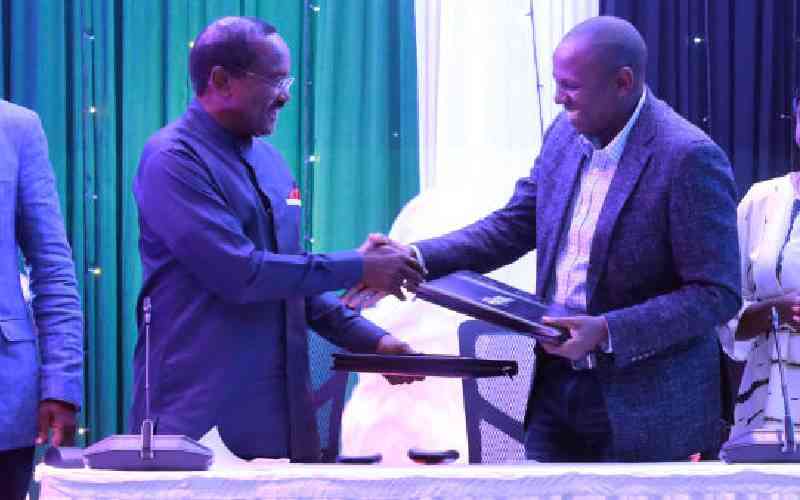The National Dialogue Committee (Nadco) has introduced nine Bills that seek to change the Constitution to clear the way for implementation of the committee’s report that was given the nod by Parliament.
Among the Bills is the Constitution of Kenya (Amendment), Bill, 2023, which if approved by Parliament will change the structure of government.
It seeks to introduce the office of the leader of official opposition and anchor in law the office of the prime minister, the Senate Oversight Fund, the National Government Affirmative Action Fund and the National Government-Constituency Development Fund (NG-CDF). It further seeks to extend the term of Senate to seven years from five.
The other proposed Bill is the IEBC (Amendment) Bill which proposes to amend the Independent Electoral and Boundaries Commission Act to increase the number of commissioners to nine from seven.
It also proposes that the decision of the commission be either by unanimous vote or by majority vote.
The Political Parties (Amendment) Bill proposes the scrapping of the office of the registrar of political parties and replacing it with the Political Parties Regulatory Commission that shall be responsible for the registration of political parties and their office holders and the management of political parties’ funds.
Other Bills include the Statutory Instruments (Amendments) Bill, 2023, the Leader of Opposition Bill, 2023 and the National Government Coordination (Amendment) Bill, 2023.
And to further guide the electoral process, Nadco has proposed the Elections (Amendment) Bill, 2023, the Elections Offences (Amendment) Bill, 2023 and the Ethics and Anti-Corruption Commission (Amendment) Bill, 2023.
The two main political camps are divided on how the Bills will be implemented. Azimio is seeking the adoption of the Bills as they are but their Kenya Kwanza counterparts want them subjected to public participation as is the case with other Bills.
The Standard has established that the allies of President William Ruto and those of opposition leader Raila Odinga clashed on Tuesday during a meeting called by National Assembly Speaker Moses Wetang’ula and his Senate counterpart Amason Kingi.
According to a sources, the meeting ended in a stalemate; the Raila-led faction insisted that the Bills be passed without any changes while the Ruto side sought to have the Bills further scrutinised to allow for changes from members.
And speaking to The Standard yesterday, National Assembly Minority Leader Opiyo Wandayi reiterated the desire by the opposition to have the Bills adopted without any changes.
“These are negotiated Nadco Bills and they should be passed as drafted. The bipartisan team already addressed key issues through the talks,” said Wandayi.
He also revealed that Parliament had this week kick-started the journey of processing key instruments to give life to the NADCO report.
“We expect that those amendments and legislative proposals (brought through the Bills) will be fast-tracked so that come next month the matter of implementation of the Nadco report is a done deal. We do not want any form of prevarication,” said Wandayi.
National Assembly Majority Leader Kimani Ichung’wah while talking to journalists reiterated the need to subject the Bill to public participation. “There are no shortcuts to law,” he was quoted as saying.
And while speaking in Kisii earlier this week, Raila called for the expeditious implementation of the Nadco Bills to ensure members maintain party fidelity.
The former premiere held that once the Bills were enacted by Parliament, MPs who jumped ship would lose their seats.
He called on elected leaders to respect the Kenyans who voted for them by remaining loyal to their parties during their tenure.
“Once elected on an ODM ticket, you have a contract with the party for five years and if you want to cross to the other side, then you must resign and seek a fresh mandate,’’ stated Raila.
He emphasised the need for respecting democracy and “upholding its principles.”
“…that is why we took the Nadco report to Parliament and we want it passed quickly so that those who cross to other parties must resign,” Raila said.
Parliament is now expected to consider the Nadco Bills as early as next week. By Josphat Thiong'o, The Standard






